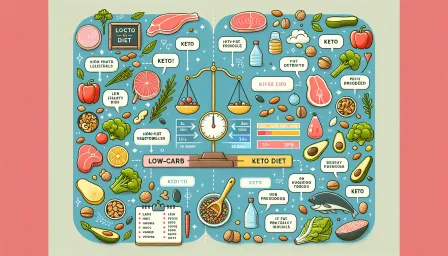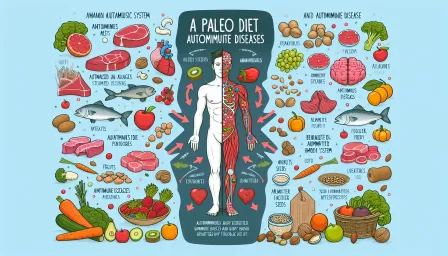The Ultimate Guide to Protein Shakes for Athletes: Boost Your Performance

Discover the ultimate guide to protein shakes for athletes to boost your performance. Learn about the benefits, types, and how to effectively incorporate them into your diet.
Protein shakes for athletes have become increasingly popular as a convenient and effective way to enhance athletic performance, aid recovery, and support muscle growth. In this comprehensive guide, we'll delve into the benefits of protein shakes, the different types available, how to choose the right one for your needs, and how to incorporate them into your diet effectively.
Why Protein Shakes Are Important for Athletes
Athletes require more protein than the average person due to the intense physical demands placed on their bodies. Protein is essential for muscle repair, growth, and overall recovery. While whole foods should always be the primary source of nutrients, protein shakes provide a convenient, fast-absorbing option to help meet daily protein requirements and support various aspects of athletic performance.
Benefits of Protein Shakes
1. Muscle Recovery: Consuming protein shakes post-workout helps repair muscle tissue damaged during exercise, reducing muscle soreness and accelerating recovery.
2. Muscle Growth: Adequate protein intake promotes muscle hypertrophy, or growth, especially when combined with resistance training.
3. Convenient Nutrition: Protein shakes are a quick and easy way to ensure you’re getting enough protein without needing to prepare a meal.
4. Weight Management: High-protein diets can increase satiety and reduce hunger, aiding in weight management and body composition goals.
5. Improved Performance: Proper protein intake supports overall physical performance, energy levels, and endurance.
Types of Protein Shakes
There are various types of protein shakes available, each with unique benefits and considerations. Here are the main categories:
Whey Protein
Whey protein is derived from milk and is considered a complete protein source, containing all essential amino acids. It is quickly absorbed, making it an ideal post-workout option. There are three main forms:
- Whey Protein Concentrate: Contains some lactose and fat, usually around 70-80% protein.
- Whey Protein Isolate: Higher in protein (90%+), with most of the lactose and fat removed.
- Whey Protein Hydrolysate: Predigested for faster absorption, often used in medical protein supplements.
Casein Protein
Also derived from milk, casein protein digests more slowly, providing a steady release of amino acids. This makes it ideal for sustained protein intake, such as before bedtime.
Plant-Based Proteins
Plant-based protein powders come from sources like peas, hemp, rice, and soy. They are suitable for vegetarians, vegans, and those with dairy intolerances. Although not always complete proteins on their own, blending different plant proteins can provide all essential amino acids.
Egg White Protein
Made from egg whites, this protein is dairy-free and lactose-free, providing a complete amino acid profile with high digestibility.
Choosing the Right Protein Shake
Selecting the right protein shake depends on individual goals, dietary preferences, and tolerance levels. Here are some factors to consider:
Dietary Restrictions
For those with lactose intolerance or allergies, plant-based or egg white protein shakes are suitable options. Vegans will benefit from plant-based proteins.
Goals
Muscle Gain: Whey protein isolates and concentrates are effective due to their complete amino acid profiles and quick absorption.
Fat Loss: Consider low-carb protein shakes with minimal added sugars. Whey protein isolate or a combination of plant proteins can be beneficial.
General Health: A balanced protein shake with a blend of proteins and other nutrients will support overall health and wellness.
Ingredient Quality
Look for products with minimal additives, fillers, and artificial sweeteners. Opt for reputable brands that ensure high-quality sourcing and manufacturing processes.
Incorporating Protein Shakes Into Your Diet
Effectively incorporating protein shakes into your diet can optimize your athletic performance and overall health. Here’s how to do it:
Post-Workout Nutrition
Consuming a protein shake within 30 minutes of finishing your workout can maximize muscle recovery and growth. Pair it with a source of carbohydrates to replenish glycogen stores.
Meal Replacement
Protein shakes can serve as a convenient meal replacement during busy days. Ensure it contains a good balance of protein, carbohydrates, fats, and fiber to sustain energy levels.
Snack Option
Use protein shakes as a healthy snack between meals to maintain steady energy levels and curb hunger.
Common Mistakes to Avoid
Even with all the benefits of protein shakes, there are common pitfalls to be aware of:
Overreliance: While convenient, protein shakes should not completely replace whole foods. Balanced, nutrient-rich meals are essential for optimal health.
Excessive Use: Consuming too much protein can lead to digestive issues and strain on the kidneys. Stick to recommended servings based on your individual needs.
Poor Quality Products: Choose high-quality protein powders with transparent ingredient lists to avoid harmful additives.
Conclusion
Protein shakes for athletes are a valuable tool for enhancing performance, supporting muscle growth, and aiding recovery. By understanding the different types of protein shakes, selecting the right one based on your goals and dietary needs, and incorporating them effectively into your diet, you can optimize your athletic performance and overall health. Always prioritize quality and balance in your nutrition, and enjoy the many benefits that protein shakes can offer.



























